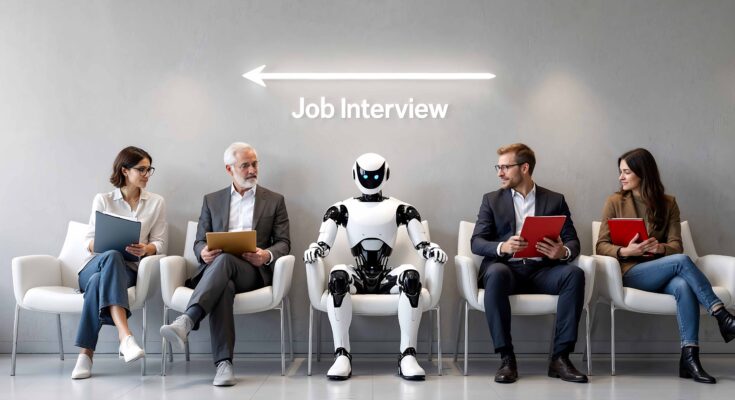AI Impact on Common Tech Roles
DevOps, QA, support. Some of the most common tech roles might not even exist in 24 months’ time. Now, this is not because companies are cutting back. It’s more because AI is replacing entire workflows. If you’re in one of these roles, then you need to watch this article.
Introduction and Background
In this article, I’ll break down five tech roles that are disappearing due to AI and automation, and I’m going to help you understand which roles are actually still growing in the AI revolution, and what you can do to train. My name is Neil Davis, and I’m the founder of Digital Cloud Training. I’ve trained over a million students, and I’ve been working in this industry for over 25 years.
AI’s Unprecedented Effect on Jobs
That’s long before AI took over the headlines. And of course, I’ve seen many shifts like this in the past, but none that have the impact that AI does. AI is certainly shifting the landscape of jobs in tech very, very quickly. Now, there are still plenty of opportunities, and as long as you have the right skills, there’s some amazing opportunities.
Job Market Dynamics and Roles Vanishing
Let’s look at DevOps first. So, DevOps is all about automation, but AI is now automating DevOps itself.
AI Automation in DevOps
For example, a recent study by Forrester showed that 70% of DevOps tasks will be automated by 2026. This is thanks to tools like GitHub Copilot and AWS Code Catalyst. What’s happening now is the AI is actually writing the pipeline code. It’s auto-remediating deployment issues and suggesting rollback strategies.
AI’s Capabilities in DevOps
It can perform log analysis and alert suppression automatically without any human intervention. So you might be thinking, well, DevOps is still quite common in terms of job postings, and that’s true, and for now, that will remain a fact. But over time demand for this role is going to diminish.
Future of DevOps Roles
That’s because more and more companies are going to realize they can use AI and automation to take some of those people out. So the role may still exist, but there won’t be as many opportunities available. So is that really a space you want to go into? AI here is going to replace DevOps engineers with AI-augmented deployment platforms.
Shift Towards Platform Engineering
You’re going to need fewer DevOps engineers managing larger, smarter platforms with a lot more automation built in, and a lot more intelligence built in as well. There’s also a shift towards platform engineering, where reusable self-service tools are built.
Entry-Level Software Engineers Affected
Another role that’s being replaced is entry-level software engineers. Tools like GitHub Copilot and ChatGPT can now write a lot of code. So they can write an entire backend, generate the CRUD APIs, build out the unit tests, and create entire code bases based on prompts in English.
Need for Human Oversight in Coding
Now, of course, we still do need humans to oversee the whole process. AI is not advanced enough yet that we can trust it to just generate all our code and push it into production. It’s just that we need more senior people who can check the code, iterate back and forth with the AI to improve it where it’s needed, make it more secure, etc.
Reduced Demand for Junior Developers
We don’t need as many developers. We don’t need junior developers. Manual QA testers will also be replaced by automation. In the old way, we used to run manual regression tests and validate user flows and log bugs, etc. A lot of that can now be automated by AI.
AI in QA Testing
AI can autogenerate the test cases, simulate user behavior, and log bugs with context. For example, Accenture eliminated over 10,000 manual testing jobs over the last couple of years using AI-powered QA platforms.
Future Roles in QA
So what is going to replace these jobs? Well, software development test engineers writing automated tests will have QA architects managing AI pipelines and test ops roles integrated into development teams. So there are still roles that exist.
Shift in QA Staffing
But again, as with the software development roles, we can now take more experienced people, get rid of the junior people, we don’t need to bring those people in because we can now use a lot more automation and AI assistance.
Automation in Support Roles
Tier one and tier two support roles could also be replaced. If you think about the last time you contacted IT support, now imagine that a chatbot is going to reset the password for you. Doesn’t need to be a human.
Routine Support Tasks Automated
It’s going to check your VPN configuration, or maybe your voice agent is going to reroute your printer job. No humans needed in the process. There’s a lot of more routine support tasks for common issues that could be automated by AI.
Escalation for Complex Issues
And then we only need to start forwarding the tickets through to more experienced people for the more complex problems that the AI just can’t solve without human interaction. Companies using Microsoft Copilot and ServiceNow AI saw a 60% to 70% drop in level one ticket volume.
Zero Touch Internal IT
So internal IT is going zero touch, and LLM agents can now actually solve a lot of the common requests. The next role that’s under threat is basic data analysts and report builders.
Impact on Data Analysts
So again, there are more senior positions here. Data analysis is definitely something which is a trending topic and a trending job role that is a good one to go into. But again, we’re looking at the more junior roles here.
AI Automation in Data Reporting
People that might do simpler things like pulling data, creating dashboards, and generating simple reports. That type of thing can be done by AI. So again, a lot more automation is going to come in.
Job Changes in Data Analysis
The jobs will still exist for the more senior people or more advanced skill sets, but not necessarily for some of the more easy tasks. So fewer jobs. Gartner actually predicted that 75% of data stories will be generated by AI by 2026.
Increasing AI Use in Reporting
So that’s a lot of reporting and data analysis being done automatically using AI rather than having a human involved in the process. Now let’s have a look at where the opportunities are, which job roles are actually going to be enabled by AI or are just not threatened by AI.
Roles Safe from AI Disruption
Because they require some additional skills like critical thinking and interpersonal communications and hands-on skills and complex problem solving that might be difficult for artificial intelligence. One example would be cloud engineers.
Responsibilities of Cloud Engineers
They design and build the cloud infrastructure. They deploy VPCs and EC2 and AM and Lambda. They might automate with Terraform and CI/CD tools and monitoring systems, scaling resources, building for high availability and redundancy.
Platforms for AI Applications
They’re essentially building the platforms on which the applications run in the cloud. And that includes applications that are enabled by AI. So a lot of companies today are moving towards the cloud because they want to build AI applications.
Cloud Hosting for AI
And where do they live? They live in the cloud. So this role is fairly safe because the infrastructure requirements are always very unique to each business and therefore the AI wouldn’t be able to do it on its own.
Need for Collaboration in Cloud Roles
So again we could use automation tools, we can use AI for assistance but there still needs to be communication amongst team members and those who are actually directing the projects or providing the business requirements and then the engineers actually building things out.
Cloud Architecture Communication
Cloud architecture is another great example because this is another role that requires a lot more interpersonal communication translating business requirements into technology solutions.
Architects Using AI
Can architects use AI to assist them in the decision-making? Absolutely, but there is always experience that has to come in here and that communication element.
Decision Trade-offs in Architecture
So here you’re making trade-offs between cost, performance, resiliency, and security, and it usually does require somebody with some experience across the different technology stacks and being able to align specifically to that business’s requirements.
Demand for Cloud AI Engineers
Now, the last one should be fairly obvious. Cloud AI engineers. Of course, if you have AI skills, you’re going to be in high demand today.
AI Knowledge for All Cloud Roles
Now, I would say all of the roles, so whether you’re going for a cloud engineer role or a cloud architect role, you should know AI today because whatever role you’re going into, you should make sure that you have some AI knowledge.
Understanding AI Services on AWS
So you don’t have to be like a machine learning expert training models, but you do need to understand, for example, if you’re working with AWS, the specific services that provide AI capabilities on AWS.
Applying AI Services for Customers
So that when customers ask you how they can provide some particular feature for their customers, you’ll be able to work out which services are applicable.
AI Engineers’ Responsibilities
Of course, the AI engineers are much more involved with the actual models themselves, training models, deploying using MLOps pipelines, building agentic workflows, maybe with Langchain for example, using services on AWS like SageMaker and Bedrock and building those actual AI capabilities into applications for their customers.
Increasing Job Market Demand
Indeed, the biggest job platform in the world shows a 76% increase in job advertisements that include both cloud and AI skills over the last 12 months.
Growth of AI and Cloud Jobs
So these are jobs that are here today. It’s not just future, but there will be more and more jobs opening up into the future as more and more companies need to build AI applications.
Training for Future Roles
So what can you do to start training and building the hands-on skills you’ll need to be successful in one of these roles?
Digital Cloud Training Boot Camp
Well, at Digital Cloud Training, we have the Cloud Mastery Boot Camp. It’s a training program that includes live training, working with instructors such as myself, working with other students in group collaboration workshops and really building a very strong hands-on skill.
Hands-on Learning Focus
We really focus on hands-on. So whether you want to become a cloud engineer, an architect, an AI engineer, we have a program and a pathway specifically for you.
Tech Career Accelerator Program
On top of that, we have a program which is part of the boot camp called the Tech Career Accelerator in which we help you build a portfolio you can demonstrate to employers to show them that you have ability and you have experience.
Rapid Changes in Tech Job Market
The tech job market is really changing very, very quickly at the moment. Some roles are disappearing, others are growing faster than ever.
Importance of Upskilling
And really the people that win are going to be the people that see that this is coming and then they actually take the action to upskill and make sure they have a skill set that’s futureproof.
Training Smart with Real Experience
And make sure you train smart getting real-world experience, not just theory. So more than certifications, actually learning how to work and solve business problems with the technology.




